The Department of Computer Engineering is one of the best departments that has always increased the glory of GRWPC. Over the years, the Department has been successful in preparing young minds to be outstanding engineers who are prominent in academics and related skills.
We are blessed with a team of dedicated and dynamic faculties who works effortlessly to bring the best out of students. In addition to classroom learning, they are provided the students with various training programs which include paper presentations, technical seminars and mock- interviews, prior to the selection interviews. From video games to hospital monitoring equipment, computer systems have evolved to become an inevitable part of human life. We assure you that learning Computer Science at GRWPC will give you a solid background in engineering fundamentals and opportunities to work on projects with reputed researchers who represent the cutting edge of Computer Science.
The Department moulds young outstanding engineers who are academically strong in both theory and practical. It organizes supplementary programs, which include Paper Presentations, Technical seminars & Mock Interviews to prepare the student for a career in the computing field or for industry acceptable. Special orientation is provided to the staff periodically for updating their acumen and to imbibe the latest technological changes. The staff and students are have undergone online training provided by the agencies like Google
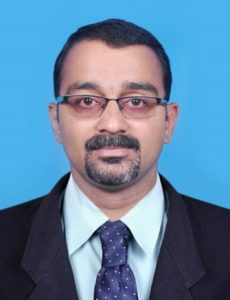
Head of Department
Mr. Sreejith K. B
9447685420
kbsjith@gmail.com
Department Profile
| Department Location | Main Block(First Floor) |
| Head of Department | Sreejith K B |
| Address for Communication | Head of Department, Department of Computer Engineering, Residential Women’s Polytechnic College, Payyanur – 670307 |
| E-mail ID | kbsjith@gmail.com |
| Telephone number | 9447685420 |
| Diploma Program (Intake) | Computer Engineering (63) |
Department News
VISION
To create industry adaptable smart women professionals in computer engineering with innovative skills and social commitment
MISSION
- To create industry adaptable smart women professionals in computer engineering with innovative skills and social commitment
- To mould computer engineering professionals in perfect harmony with the changing industrial requirements
- To set conducive learning environment to improve innovative thinking and problem solving skills
- To develop effective communication skills, leadership qualities, professional ethics and social commitment through value added programmes.
PEO: Program Educational Objectives
- Excel in professional career and / or higher education by acquiring knowledge in the area of Computer Science and Engineering.
- To develop industry focused skills and leadership qualities to become successful engineers and entrepreneurs.
- Able to design and evaluate technically sound, economically feasible and socially acceptable solutions in Computer related field
- Learn to effectively communicate ideas in oral, written, or graphical form and to promote collaboration with other members of engineering teams.
- To inculcate a passion towards higher education and lifelong learning in the field of Computer Engineering.
Program Objective (PO)
- Engineering Knowledge: Apply knowledge of engineering fundamentals and engineering specialization to solve the engineering problems.
- Problem analysis: Identify and analyse various engineering problems using standard methods.
- Design/Development of Solutions: Design computer system components and services that meet societal, environmental and national requirements
- Experiments and practice: An ability to plan and perform experiments and practices and to use the results to solve engineering problems.
- Modern tool usage: select, and apply appropriate techniques, resources, and modern engineering tools to solve complex engineering activities.
- The Engineer and Society: Apply reasoning informed by computing knowledge to assess societal, health safety, legal and cultural issues and consequent responsibilities relevant to the professional engineering practice.
- Environment and sustainability: Understand the effect of the engineering solutions in societal and environmental contexts, and demonstrate the knowledge and need for sustainable development.
- Ethics: Apply and adhere to professional ethics and responsibilities and norms of the engineering practice.
- Individual and Team Work: : Function effectively as an individual, and as a member or leader in diverse/multidisciplinary teams.
- Communication: Communicate effectively on the technical aspects of any complex engineering activities, comprehend effectively any communication received in such contexts, document engineering knowledge in standard forms or as effective presentations, give and receive clear instructions.
- Life-long learning: Ability to analyse individual needs and engage in updating in the context of changes in the IT field.
- Project Management: Use engineering management principles individually, as a team member or a leader to manage projects
PROGRAM SPECIFIC OUTCOMES ( PSO’S)
- Understand the structure and development of software systems and demonstrate skills in programming.
- Adeptness in solving real world problems using appropriate data structure and suitable algorithm.
- Inherit the talent for team work through competent computing aids.
- Offer technical solutions using acquired knowledge with concern for society and environment
Central Computing Facility
The department provides computing facilities with separate computers to each student. All laboratories are connected to 20Mbps internet connection.
Lab resources: 15 Desktop PCs
Lab in charge: Jose K.A
Software Laboratory
This lab is meant for conducting laboratory experiments to the students of computer science and engineering department .This lab is equipped with 36 systems with all the necessary programming software.
The main experiments conducted at the software lab are:
- Programming Lab: This lab provides fundamental knowledge on various platforms such as, LINUX, UNIX, DOS, and Windows. Exposure to problem solving and programming methodologies are provided. Basic programming sessions in C, C++, and LISP are conducted here.
- Systems Administration Lab: A good programmer should know the design principles of Operating System and compilers. Linux OS is used in the lab for this purpose. The experiments include Linux commands, network sharing and implementation of different phases of compiler and assembler.
- Network & DBMS Lab: To keep in pace with the explosive development in computer networks and data communication a conceptual understanding of underlying facts is necessary. The Network Systems Lab provides a solid foundation for emerging professionals, providing a platform for behavioral study. This lab includes study of Socket programming, TCP/IP, RMI, Internet programming using JAVA etc.
Lab resources: 80 Desktop PCs + Printer +Scanner + 2 UPS
Lab in charge: Jose K. A. , Aiswarya M





Hardware Laboratory
Experiments conducted in this lab include familiarization with PC components and assembling and maintenance of computer systems. Lab sessions are provided to first year students to familiarize with motherboard, processors, expansion slots, power supply units etc.
This lab is also used to conduct Assembly Language programming sessions. Low level programming with 8086, interfacing experiments using stepper motor, ADC, DAC and HEX keyboard are handled in this lab.
The lab has ten 8086 trainer kits, in-circuit emulators for popular 8 and 16 bit processors, digital storage oscilloscopes and digital testing equipment. It is also equipped with 25 personal computers for conducting MASM/TASM programming sessions.
Lab resources: Crimping tool set
Lab in charge: Jose K. A.



| PROGRAMME COORDINATION COMMITTEE (PCC) MEMBERS | a) Mr. Solomon P. Y.
b) Mr. Sreejith K. B. c) Mr. Sarang Sukumar |
| INTERNAL QUALITY ASSURANCE CELL (IQAC) MEMBERS | a) Mr. Sreejith K. B.
b) Mr. Sarang Sukumar |
| TUTORS | a) 2016-2021 Batch – Mr. Sreejith K. B.
b) 2017-2022 Batch- Ms. Aiswarya M c) 2019-2023 Batch- Mr. Videesh V d) 2020-2024 Batch- Mr. Jose K. A. |
| DEPARTMENT ADMISSION COMMITTEE COORDINATOR | Mr. Jose K. A. |
| DEPARTMENT STAFF SECRETARY | Mr. Videesh V |
| IEDC AND STARTUPS COORDINATORS | Mr. Sreejith K. B. |
| DEPT. NOTICE BOARDS IN-CHARGE | Mr. Videesh V |
| DEPT. LIBRARY IN-CHARGE | Mr. Videesh V |
| ARTS CLUB-CT COORDINATORS | a) Ms. Aiswarya M
b) Mr. Videesh V |
| WEBSITE COORDINATOR | Ms. Aiswarya M |
| NBA COORDINATORS | Mr. Sarang Sukumar |
| CENSA COORDINATOR | Mr. Sreejith K. B. |
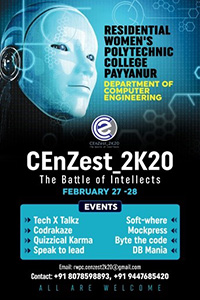
27-02-2020 CENZEST 2K20
Department of Computer Engineering conducted its two days technical fest on 27th and 28th February 2021. Several technical events were organized and students from various Polytechnic colleges took part in the event.
- Curriculum & Syllabus
To access the Curriculum & Syllabus for Revision 15 & Revision 20, visit Academic -> Syllabus -> Diploma – Revision 2015/ Diploma- Revision 2021 in the following link:
https://sitttrkerala.ac.in/index.php?r=site%2Fhome# - Question papers
Visit Academic -> Diploma Model Question Papers in the following link:
https://sitttrkerala.ac.in/index.php?r=site%2Fhome# - Lab Manuals
Visit Academic -> Diploma Lab Manual in the following link:
https://sitttrkerala.ac.in/index.php?r=site%2Fhome#
Meet Our Team
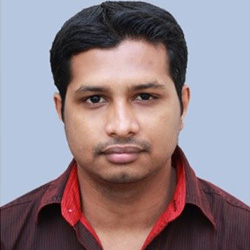
Mr. Sarang Sukumar A
Lecturer
9400547253
sarangsukumar@gmail.com
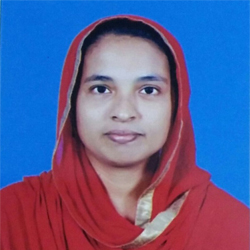
Ms. Sulekha A.S.
Lecturer
9495068316
abdulsalimsulekha@gmail.com
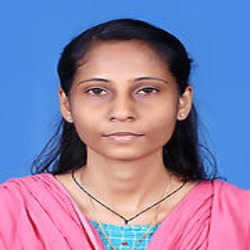
Ms. Saritha A V
Lecturer
8921690921
sarithakkt@gmail.com
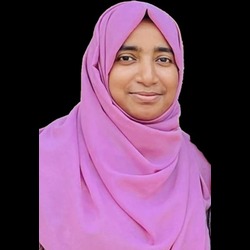
Ms. Fasila K P
Lecturer
9895268129
fasilakp2021@gmail.com
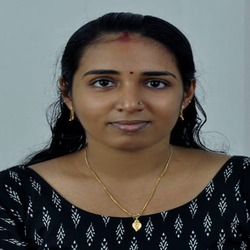
Ms. Jinsha . K
Lecturer
9495069658
jinshaktly@gmail.com
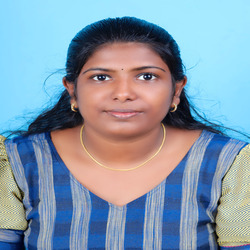
Ms. Vinisha K
Demonstrator
9496070159
vinishakmalu96@gmail.com
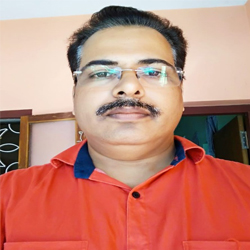
Mr. Mukundan T.V.
Demonstrator
9497161744
mukundan.tv@gmail.com
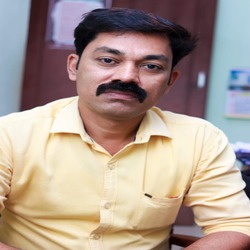
Mr.Videesh V.
Trade Instructor
9020490622
videeshv@gmail.com
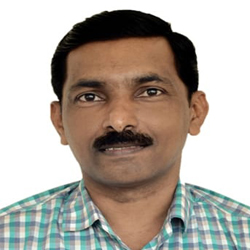
Mr. Pradeep Kumar K.P.
Trade Instructor
9946457866
pradeep.palayi@gmail.com
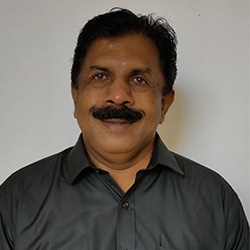
Mr. Prabhakaran
Tradesman
9846049204
pprabhan52@gmail.com
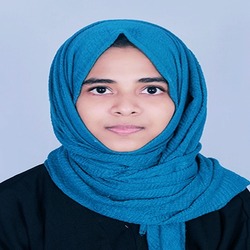
Ms. Hafsath A
Apprentice Trainee
7510556856
hafsath2002@gmail.com





